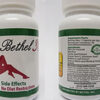Ask your doctor what happens if you want to stop taking a drug before you start taking it. The three following drugs/categories of drugs are commonly prescribed and each can cause a “rebound” effect when stopped. Rebound effects refer to a return of the original symptoms, often more intensely. The rebound effect vary and are not the only side effect experienced once the drug is stopped. However, rebound effects can make it very difficult to stop taking the drugs below.
Ambien (generic name zolpidem): This common insomnia drug can cause Stomach upset, nausea, stomach pain or vomiting as well as panic attacks, anxiety and irritability, tremors or seizures. Even one dose can cause “rebound insomnia” the next night. The rebound effect encourages occasional users to take another dose to counteract the rebound which can start an overuse cycle. Withdrawal symptoms tend to be worse the longer one is on the drug. Therefore it’s much more difficult not to return to taking Ambien. (via eHow.com, Drugs.com and other sources)
Antidepressants: “Antidepressant discontinuation syndrome” feels like the flu and can also cause disturbing mental thoughts and images. 1 in 5 people will experience withdrawal symptoms after taking an antidepressant for 6 weeks or more. Tapering down the dosage gradually might lessen the effects. Expect the additional possibility also of anxiety, fatigue, nightmares, trouble sleeping, depression and mood swings, loss of coordination, muscle spasms, dizziness, nausea, vomiting, headache. WebMD says: “The NIH says you can’t get ‘hooked on’ antidepressants, and that they aren’t habit forming.” Separate from that helpful nugget, many web sites note that all depression drugs can cause withdrawal symptoms. WebMD notes that the serotonin and norepinephrine drugs seem to be hardest to quit: Effexor, Cymbalta, Celexa, Lexapro, Paxil, Zoloft. Ironically, withdrawal symptoms are less severe with drugs that take longer to clear the system, like Prozac.(Healthline.com, WebMD, and other sources)
Anti-heartburn drugs: The anti-heartburn drugs Prilosec, Prevacid, Nexium, Aciphex, and Protomix are proton pump inhibitors (PPI). The internet is littered with questions about withdrawal symptoms and rebound effects from PPIs, but the major health sites had nothing on stopping PPIs. None of them even mentioned the 2009 study in which healthy people who did not suffer from heartburn took anti-heartburn drugs for 6 weeks. After stopping, more than 40% experienced heartburn, acid regurgitation and dyspepsia. The PPIs gave them heartburn! (via Kate’s Free Search, Mercola.com and other sources).
So remember to think about the long-term consequences of taking these three common medicines and any other prescriptions you are given, While starting them might be easy, getting off them might be challenging.






